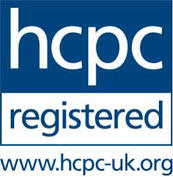Choosing a therapist
Choosing a therapist can be tricky. You might have all sorts of questions in your mind, such as “Will I feel comfortable talking to them?”, ”Will they understand?”, “Will they know how to help?” Until you meet with your therapist and start to work with them, it’s difficult to answer these questions. There are some things you can do beforehand though.
|
1. Talk to your therapist on the phone before you arrange an appointment.
Many therapists will offer a free initial telephone consultation before meeting with them. This allows you to ask questions and make an informed choice about whether you want to start the process of psychological therapy. |
2. Don’t feel you have to stay with someone just because you’ve met them.
Think of your first appointment as a chance to decide if you feel your therapist might be a good match for you. |
3. Check out what their qualifications are.
There are a range of different professionals offering talking therapies with a wide range of qualifications. The most common you’ll see advertised are counsellors, therapists and clinical or counselling psychologists. |

